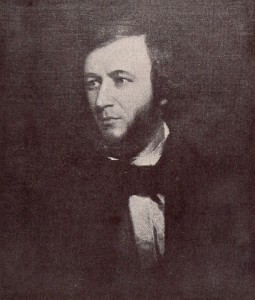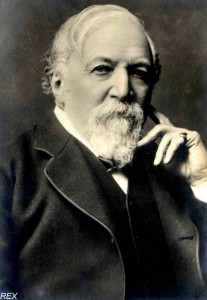 When our Nelson was two years old, he was dynamite, and I wasn’t the best mother for this headstrong, impulsive child, being a first-timer with no experience. For example, I remember one day when the two of us visited my aunt for lunch. She lived in a high-rise building on a busy four-lane street. After lunch, as we walked outside, little Nelson (who loved cars and trucks) saw the whizzing traffic and made a bee-line for the street.
When our Nelson was two years old, he was dynamite, and I wasn’t the best mother for this headstrong, impulsive child, being a first-timer with no experience. For example, I remember one day when the two of us visited my aunt for lunch. She lived in a high-rise building on a busy four-lane street. After lunch, as we walked outside, little Nelson (who loved cars and trucks) saw the whizzing traffic and made a bee-line for the street.
 “Nelson!” I shouted. “NELSON!” But he was a boy on a mission, passionate about pursuing his own plan, and didn’t look back. Dropping my bags and racing after him, I could see he was going to get to the street before I could get to him, and I was desperate to stop him.
“Nelson!” I shouted. “NELSON!” But he was a boy on a mission, passionate about pursuing his own plan, and didn’t look back. Dropping my bags and racing after him, I could see he was going to get to the street before I could get to him, and I was desperate to stop him.
Nate and I had tried to teach this little boy about the dangers of traffic. We’d done our best to lead him sensibly, counting on him to trust our wisdom over his own. But as all two year olds know, their personal agendas trump parental ones.
But what about us adults? Are we any different in our dealings with God? What does it take for us to set our own plans aside and sincerely say to him, “Ok. You lead.”
It’s very possible God sees us as we see our children. He has the ability to teach us how to live well and lead us one step at a time in that direction. And since he’s God, there’s no question his leadership is superior to ours. Despite that, though, we often choose to do our own thing rather than his.
None of us would argue with the idea that God is a fabulous leader, not just of individuals but also of families, churches, businesses, and governments. We can find a variety of scriptural examples showing us what happens when people follow his lead and what happens when they don’t.
“See those?” he says. “So how ’bout we do it my way?” And yet we still refuse.
It’s not that we doubt him as a leader. We all know he has both the ability and the longing to direct us perfectly. The problem comes with his one prerequisite: surrendering self-management. And even a two year old can tell you, that doesn’t come easy.
When Nelson was dashing pell-mell toward high speed traffic, I was frantic to stop him before he got hit by a car. All I could think to do was shout the only word I knew might stop him:
“CANDY!”
 Nelson heard it, stopped at curb, and turned in my direction. It was just enough time for me to arrive and grab him, the perfect case of my leadership being superior to his. Surrendering his personal car-truck agenda for my candy-plan gave him the best outcome by far.
Nelson heard it, stopped at curb, and turned in my direction. It was just enough time for me to arrive and grab him, the perfect case of my leadership being superior to his. Surrendering his personal car-truck agenda for my candy-plan gave him the best outcome by far.
Now, if only the rest of us would routinely do the same with the Lord.
“We take our lead from Christ, who is the source of everything we do…. so that we will grow up healthy in God.” (Ephesians 4:15-16)




